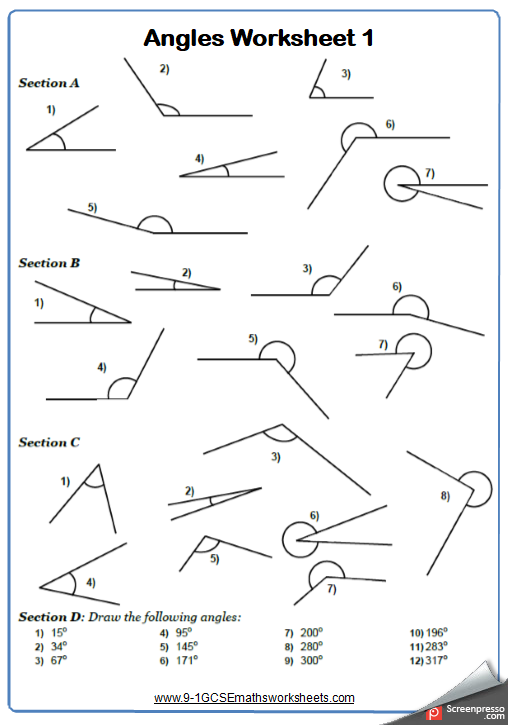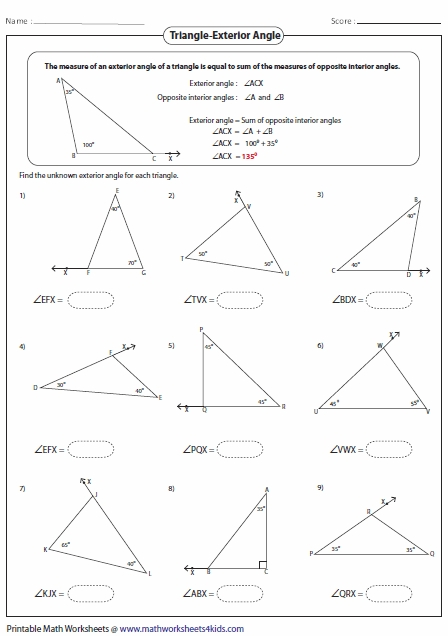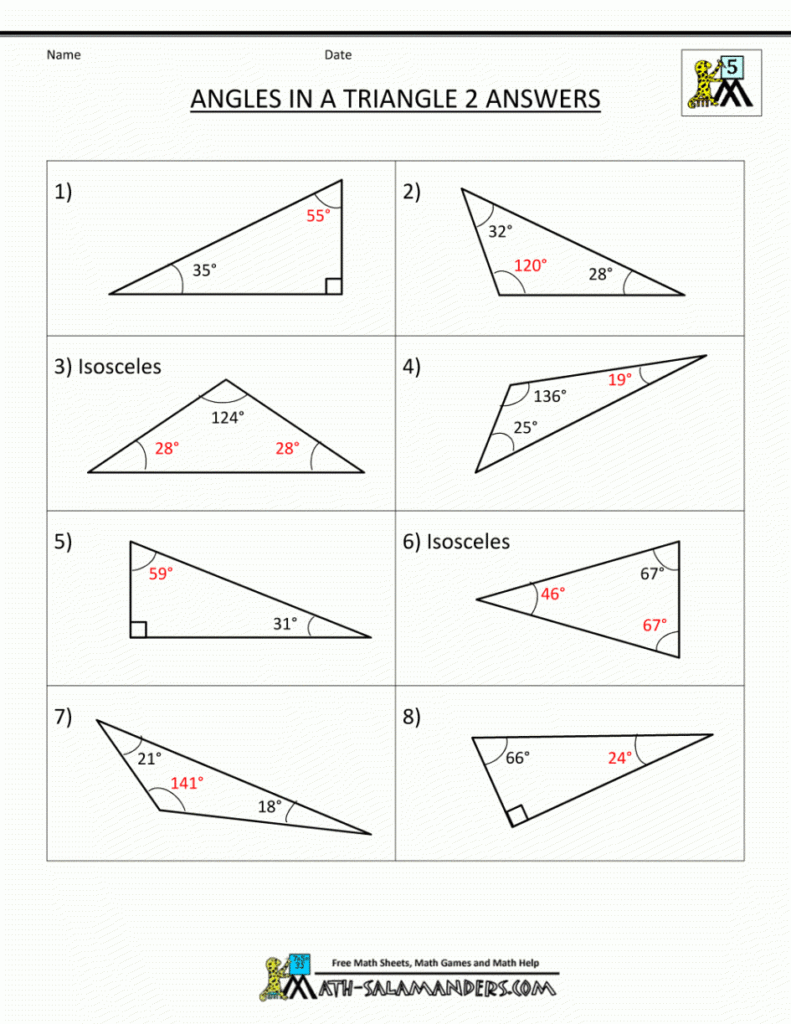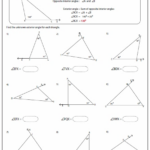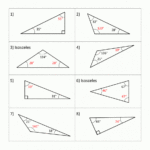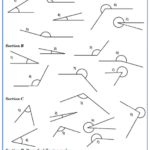Angle Bisectors Of Triangles Worksheet Answers – Triangles are one of the most fundamental geometric shapes in geometry. Understanding the concept of triangles is essential for understanding more advanced geometric concepts. In this blog post We will review the various kinds of triangles Triangle angles, how to determine the dimensions and the perimeter of a triangle, and also provide the examples for each.
Types of Triangles
There are three types for triangles: Equal isosceles, as well as scalene.
- Equilateral triangles comprise three equal sides as well as three angles of 60 degrees.
- Isosceles triangles have two equally sized sides as well as two angles.
- Scalene triangles come with three different sides as well as three angles.
Examples of each kind of triangles will be given.
Triangle Angles
Three angles are found in an arc: acute right, and obtuse.
- Acute angles are those with less than 90 degrees.
- Right angles are exactly 90 degrees.
- Obtuse angles are more than 90 degrees.
A variety of angles will be provided.
Perimeter of Triangles
The perimeter of one of the triangles is simply the sum of lengths along its three sides. To calculate the perimeter of a triangle one adds the lengths of its three sides. The formula for calculating the perimeter of an arc is:
Perimeter = Side A + Side B + Side C
A few examples of how to calculate the perimeter of the triangle will be presented using various varieties of triangles.
Area of Triangles
The area of a triangular is the amount of space inside the triangle. To determine the surface of a triangle you will need to know exactly the width of the base and the dimension of the triangle. The formula for calculating the dimensions of a triangular area is as follows:
Area = (Base x Height) / 2
A few examples of how to calculate the area of an individual triangle will be demonstrated using different types of triangles.
Conclusion
Understanding the concept of triangles is an important component of learning to master geometry. Knowing the different kinds of triangles, angles, and knowing how to determine the size and perimeter of a triangle will assist you in solving increasingly difficult geometric problems. Through our extensive set of triangle worksheets, students can increase your understanding of these core concepts and help you take your geometry ability to the next level.
